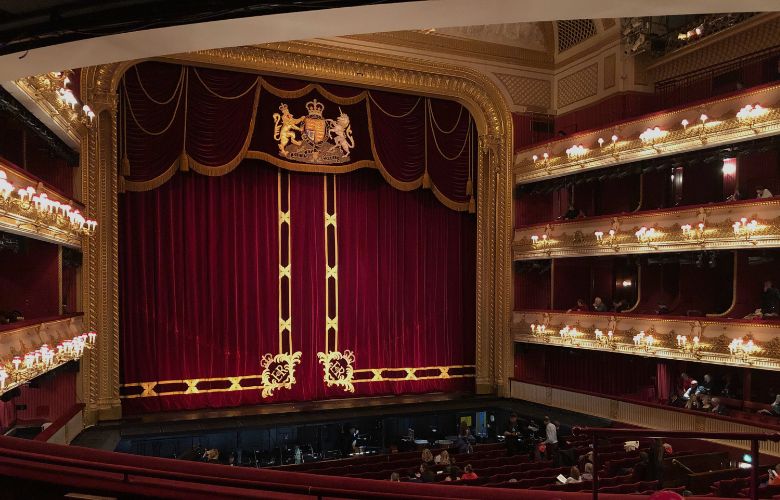
Arts Council England has announced a shake-up in funding cuts that will affect opera, with a focus on moving the Arts out of London in the coming years. The plans for a new model have caused concern from many in the UK over what might lay ahead following the rebuilding in a post-pandemic climate.
Arts Council England’s funding plans for 2023-26 have shocked many, as there has been an onus on moving outside of London. The Arts Council official announcement explains:
All the decisions we have made in this National Portfolio are rooted in the vision set out in Let’s Create. It was born out of the conversations we had with people all over England that helped us shape that 10-year strategy. Time and again they told us they wanted to see and experience the best creative activities and cultural events in the places where they lived. And they wanted their families, friends and their communities to share in the benefits access to creativity and culture can bring. But what does that mean for this investment round?
The money we invest is not our own. It comes from the taxes we pay and the National Lottery tickets we buy. But in some places our funding has been too low for too long. Those include some of the towns and cities which were the powerhouses of the industrial revolution. They are also rural areas which inspired countless poets and artists. And they also include our seaside resorts that are as integral to our cultural heritage as their names are to the sticks of rock sold there. This investment programme changes that. Wigan, Gloucester, Stoke, Blackpool, Mansfield and North Devon are among 78 places where organisations will receive a share of £130 million over the next three years.
While there are aims to bring culture outside the capital, and to champion equality and fund previously overlooked groups and organisations such as Ballet Black, there are issues about the jobs and impact of those companies that will have their funding cut, and their locations moved. One such change is English National Opera, who lost £12.8m from their annual funding, but did receive the recommendation to relocate from London to Manchester by 2026. There were cuts also made to the Royal Opera House, which was down by 9%, as well as the English National Ballet, who received a 5% cut, and the Welsh National Opera, who lost 33% of their funding.
The Musicians’ Union expressed their concerns for the music industry cuts, with a statement that read:
“While the Musicians’ Union supports increased funding for arts organisations outside London, today’s announcement reveals a deliberate decision to do this at a direct cost of London-based companies. International tourism in London generates millions for the UK’s economy and money invested in the arts brings a significant return overall. The Government has allowed public funding for the arts to diminish over the past decade and this has led to these drastic decisions by ACE.
The Union expressed deep concern for musicians working for ENO who will no doubt fear the impact of this decision for their jobs and those of colleagues. The funding cut is particularly shocking as ENO has exceeded many of the success criteria set for it by ACE in terms of young audience growth, increased diversity and representation, ability to reshape opera, and financial stability.
Arts organisations have been trying to deliver their best work despite diminishing funding over the past decade. This latest news about ENO is a sad indictment of the current Government’s apparent disinterest in supporting the UK’s arts infrastructure as a whole.
A relatively small investment in culture from the Government would avoid this ‘robbing Peter to pay Paul’ approach which risks long-standing and world-renowned organisations. Compared to Government spending in other areas of the economy, and what they invested in maintaining companies during the pandemic, the money received by organisations like ENO is tiny.”
The continued hard-sell and gentrification of Manchester is already pricing out many from living in and visiting the north of England. There is scepticism over whether the city can sustain the upcoming opening of The Factory, a new £210m venue, prior to the ENO moving to the area.
Although many in the Arts have reacted negatively to the plan for the coming years, there is indeed potential for some good to come from the small, regional companies and local people who will benefit from the money and culture available.
Read the full Arts Council England 2023-26 Investment Programme
Accessibility At The Smith Center Series: Part One
James “Fitz” FitzSimmons Interview: The Boys In The Band On Netflix


Michelle is a musician and composer from the UK. She has performed across the UK and Europe and is passionate about arts education and opportunities for women and girls.
Read Full Profile© 2021 TheatreArtLife. All rights reserved.

Thank you so much for reading, but you have now reached your free article limit for this month.
Our contributors are currently writing more articles for you to enjoy.
To keep reading, all you have to do is become a subscriber and then you can read unlimited articles anytime.
Your investment will help us continue to ignite connections across the globe in live entertainment and build this community for industry professionals.